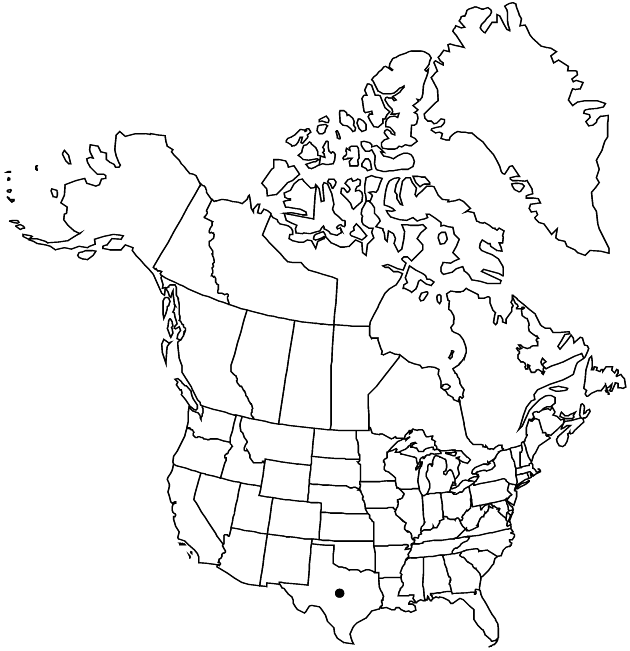Flaveria brownii
Ann. Missouri Bot. Gard. 65: 611, fig. 4. 1979.
Perennials (perhaps flowering first-year), 15–70 cm (glabrate). Stems erect or decumbent. Leaves sessile; blades linear, 5–12 cm × 2–8 mm, bases barely connate, margins entire or weakly serrate. Heads 20–100+, in ± open, paniculiform-corymbiform arrays. Calyculi of 1–2 linear bractlets 1–2.5 mm. Involucres oblong-angular, 4–5 mm. Phyllaries 5–6, boatshaped (phyllaries enclosing ray-florets conspicuously keeled). Ray-florets 0 or 1; laminae yellow, oblongelliptic, 2 mm. Disc-florets (5–) 7–10; corolla-tubes 0.8–1.2 mm, throats funnelform, 1.2–1.5 mm (distal 1/2 expanded). Cypselae linear, 1.5–2 mm (those of rays longer); pappi 0.2n = 36.
Phenology: Flowering Jun–Dec.
Habitat: Saline, sandy, and marshy areas of costal flats and islands
Elevation: 0–30 m
Discussion
Flaveria brownii, which has radiate heads present among the discoid heads in each capitulescence, is superficially similar to the discoid F. oppositifolia. It occurs in the lower Gulf Coast region of Texas; the latter is Mexican.
Selected References
None.
